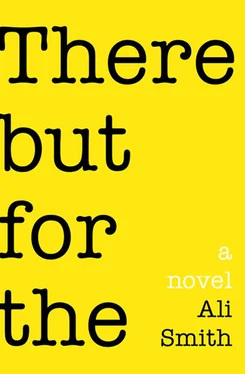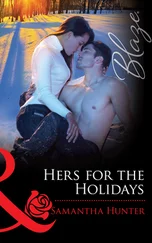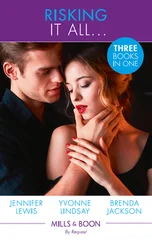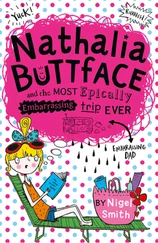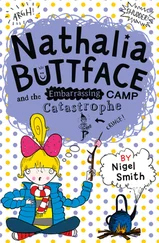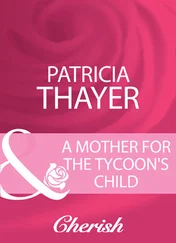In it Gracie is younger and wearing a big historical-looking hat. She throws an orange and it hits royalty by mistake. Then she argues with the policeman who arrests her, and she says to the policeman, if you keep on talking to me like that I’ll have to call a policeman. Then the judge in court asks her did she think it was appropriate behaviour, throwing an orange at a person of royal blood. And Gracie says, well, it was a blood orange.
There’s a dog somewhere in the theatre. It must have been smuggled in; dogs aren’t permitted in the pictures. When Gracie starts singing a song and reaches a particularly high note this dog starts up singing along. ArooooooOOOooo. Pretty soon the whole stalls is a riot every time Gracie hits the note and the dog joins in. Pretty soon it sounds like the people up in the balcony are rioting too.
The sound slows down suddenly and then stops. The film stops. Everybody shouts. The houselights come on. People are waving their arms about and shouting. The manager and the doormen walk up and down the aisles. There’s a scuffle down at the front, then one of the doormen walks back up dragging two boys, one on either side of him, one by the ear, one by the back of the neck, then the other doorman carrying at arm’s length a small wiry black and white Heinz 57 varieties mongrel, its tail going in circles like a propeller. The manager paces behind, ignoring all the eyes.
The place goes crazy with whistles and cat-calls. The chap sitting in front of May has turned to watch the parade go past up the aisle. Then his eye falls on May and her friends sitting there. He’s in Air Force uniform, he’s young. He’s not bad-looking. He’s with a girl but even though he is he still has a good look at all three of them and it’s May that catches his eye.
His girlfriend looks none-too-pleased.
The film starts up again but not in the right place. The audience shouts and boos then settles down to the story anyway, a load of silliness about the prince of a made-up country giving up his kingdom to have a love affair with a barmaid who’s a good singer. Gracie starts singing again and goodness knows what comes over May. It’s as if she can’t help herself. She knows she’s about to do it, and she knows she’s doing it only so as to annoy the snooty girlfriend. No other reason. No other time in her life so far has she ever been so bold and bad as she’s about to be right now when Gracie does it, hits that high note, and May starts up a howl, making it sound as much like that little dog sounded as she can.
It’s a split second before the roar of laughter shakes the whole place. Then everyone joins in. Soon the place is nothing but howling and yelping and laughter. May’s friends are black-affronted. The girl in front is black-affronted. But the chap in front has turned again and had a long look, in the brightness that comes off Gracie on the screen, at May, who sits in silence at the centre of all the noise and roaring and whistling, smiles her pretty smile, then winks her pretty eye with all the knowing she has, at the silhouette of the boy who, she’ll find out two nights later when she puts on her best dress, the blue and white one with the African trees and gazelles on it, and he’s waiting there for her outside the Palace with the tickets for This Happy Breed already bought in his hand, is Philip Young, halfway through ten days’ leave.)
There’s an old song in May’s head for some reason now. Sally, Sally, pride of our alley. That was what was her name, Gracie, Gracie Fields. And that was the thing about Gracie Fields, she defied belief, and then she showed you you’d been wrong ever to doubt her. You never believed she’d be able to hit that high a note. You could sense the note that was coming, the note that was meant to come, and you’d think to yourself there’s just no way she’ll ever reach that high, there’s no way anyone could. And then she’d go and hit a note so much higher than the one you’d expected, like a whole ladder of notes higher, and you’d be left scoured like a clean sink by the highness of it. She was a classy one. She could sing like the women in the operas can. And she was funny too. There was the song she sang about the fly that washed its legs in a jug of beer and dried itself on a man’s moustache, it was the fly’s birthday in the song, and it took its lady friend to the Grand Hotel for a birthday treat. Oh, it was a funny one. There was a song about a clock that fell in love with a wristwatch and the wristwatch told him he was fast.
Sally, Sally up the alley, and there was Walter, Walter, lead me to the altar and I’ll show you where I’m tattooed. We had fun, that was the difference between then and now. That was the intimate all right. I don’t think I ever saw their father with his clothes completely off, and I don’t think he saw me neither with mine, but we had the intimate all right, and we had fun. I don’t see that there’s so much fun in it, what I see of it now, May said in the confines of her head, not out loud, looking at that girl sitting there with the skirt that was barely worth the wearing. The girl was gloomy-looking now, for the alarm in the ceiling had defeated her. She picked at her purple nails. She got her little machine out again and picked at something on it. Oh they all think they’re the first to discover it, they all thought, they were all convinced nobody’d known about it till they did, nobody could possibly know about it but them, with their flower-power, their nineteen-sixties with the flowers in the guns and their summers of love, as if all we’d had was winter, all we’d had was rations. Just very good at keeping it quiet, is what we were. We had to be. It was the way. Them with their jet-age.
There was Patrick, when it happened to him, coming home all doe-eyed and staring into mid-air over his sausages, then always in the shower and trailing the smell of that godawful aftershave all down the stairs, and going and standing breaking the rose off the stem out in the garden when he thought I wasn’t watching, tucking the bloom inside his leather jacket for some girl and off he went to town, and Eleanor I knew about because she came home from college that time and she gave me such a warm cuddle, and it wasn’t like her to take me in her arms like that, and I had a secret look at her and she had a shine to her so I knew immediately, and I was pleased for her, not that we could say any of it out loud, and not that I dared tell her father.
Not Jennifer, though.
Though what about him, that boy, that boy all along, the boy May couldn’t look in the eye.
Even with all the years of that boy coming to see her and growing into a man before her eyes, she could still see the boy in him.
But him turning up at the door every year couldn’t help but mean another year had passed that May’s own girl hadn’t had.
The first year the knock had come at the door May hadn’t let him in. The next year he did it again, same boy. That time May did let him in. She gave him a cup of tea. He always brought something. Chocolates, flowers, bulbs for the ground. Once he brought a little china figurine of a chaffinch. He’d noticed, maybe, how she liked them of birds, from the ones already in the cabinet. After he’d gone May had put it on the ledge at the back of the Hoover cupboard where she wouldn’t have to look at it. Loyal as January. When he first came he had long hair, and a look about him of that boy who’d been in the film about Oliver, the artful one, not the little prissy one. They sat opposite each other, May and the boy, every year. He grew up, like her girl would have, before her eyes. One year he missed the day, but he sent a card from Canada written on in neat handwriting. Sorry I can’t be there, kind of thing. It was the kind of postcard a man would choose, not pretty at all. On the front it said Toronto, above a colour photo of people walking in sleet, a snowy street of shops. Shops were the same the world over. But he’d paid for it so it would arrive at the house on the exact right date. It was nice of him.
Читать дальше
